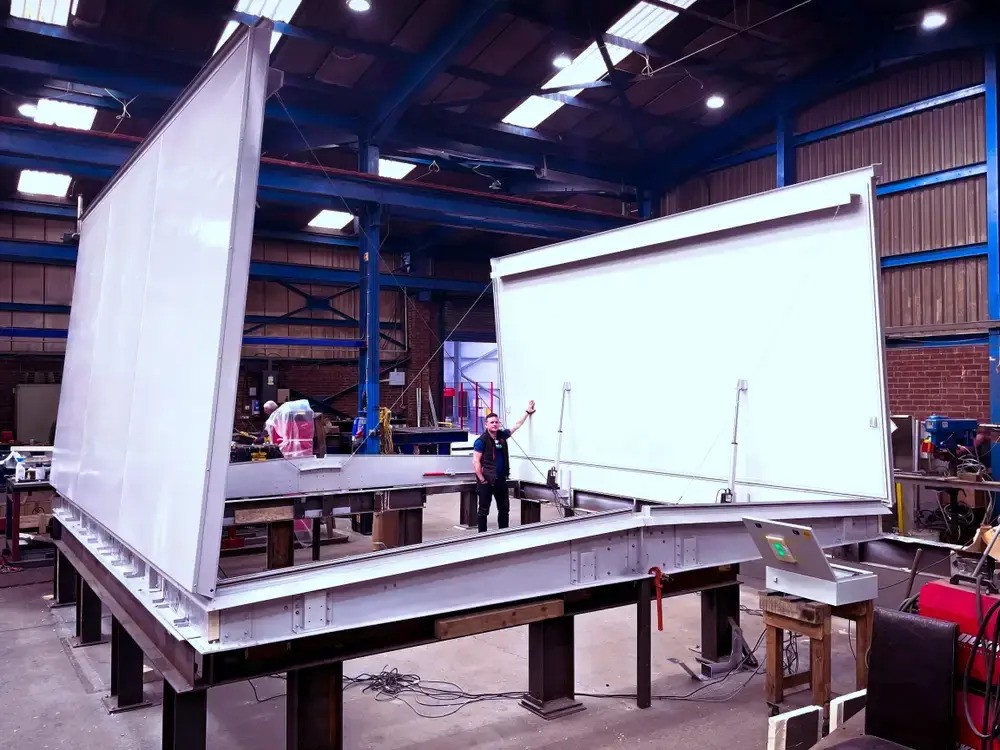WALSALL, UK. April 17th, 2025 – A new 25% tariff on imported aluminum, imposed by the Trump administration last month, is driving up costs for critical U.S. infrastructure projects.
Surespan Limited – a key supplier of industrial access solutions for U.S. infrastructure – now faces major cost pressures due to these tariffs, which took effect on March 12, 2025. One month later, with the tariffs still in place, those added costs are rippling through public projects with an urgent financial impact.
Tariffs Pressure Key Supplier and Project Budgets
In one case, a $500,000 infrastructure project currently out for re-bid has seen its price tag jump by an additional $150,000 solely due to the aluminum import tariff. Surespan is the only supplier capable of meeting this project’s highly specialized requirements, so the 25% tariff cost on its components is unavoidable. This means an effective 30% budget increase on the project – an overrun that will ultimately be paid by taxpayers, as public infrastructure is funded by municipal and federal budgets. Local officials scrambling to re-budget warn that these unforeseen costs could force cutbacks elsewhere or higher taxes at the community level.
“Our team at Surespan is committed to providing essential, high-quality components for American infrastructure. However, these tariffs create unavoidable cost pressures that are ultimately reflected in the price of public projects, placing a direct financial impact on the communities these projects serve,” said Robert Fletcher, Business Development Director at Surespan, underscoring the company’s concern.
Surespan continues to work with project stakeholders to mitigate costs, but Fletcher noted that the tariff acts as a direct surcharge on public works that no amount of supplier efficiency can offset.
Broader Impact on Communities and Development
Economists and industry analysts nationwide confirm that these tariffs are inflating costs across multiple sectors and delaying key developments. Reports indicate that the 25% duty on steel and aluminum is driving up prices and extending lead times for projects in renewable energy and construction alike. Wind farm and power grid initiatives face higher material costs and potential delays as a result of the import taxes. In the construction industry, one homebuilder described materials prices as having “gone through the roof” since the tariffs took effect. For everyday Americans, these rising public project costs strain already-stretched household budgets, especially for lower- and middle-income communities.
When infrastructure improvements cost more, the financial burden circles back to taxpayers – whether through increased taxes, utility fees, or diverted public funds that could have supported community services. With critical projects from road repairs to renewable energy installations now more expensive and slower to materialize, the tariffs are sparking urgent calls for policy attention.
Robert Fletcher added: “Stakeholders in both industry and government are watching closely. The added $150,000 on a single project is a stark example of a nationwide trend: tariff-driven cost surges that ultimately hit the public wallet.
“As infrastructure needs grow and funding is stretched thin, the pressure is on to address how trade policies are impacting the very communities they aim to protect. We are urging media and policy leaders to scrutinize these developments, as the true cost of tariffs becomes increasingly clear in towns and cities across America.”
ENDS

